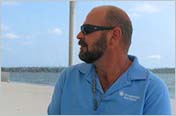“Protest” was the timely title and political theme of the New York Festival of Song (NYFOS) program, on February 27, at Merkin Concert Hall, featuring a septet of excellent, expressive young singers—sopranos Shereen Pimentel and Christine Taylor Price, mezzo-soprano Rihab Chaieb, tenor Joshua Blue, baritones Dimitri Katotakis and Jacob Scharfman, and bass Andrew Munn—led by NYFOS Artistic Director Steven Blier from the Steinway piano, with assistant pianist Chris Reynolds and guitarist Jack Gulielmetti. Historical issues and resistance by African-Americans, Latinos, Jews, gays, women, union organizers, and others were effectively aired in song, in “Protest,” which Mary Birnbaum staged in an earlier incarnation and Mo Zhou directed in the present one.
Pimentel’s “If It’s Magic,” by Stevie Wonder, was the opening song, simply, directly, and touchingly sung, and Blue gave us more Wonder, “Big Brother,” a cry from the ghetto, complete with scatting and obbligato from the ensemble, and guitar and piano assistance. Munn entered, coming down the aisle, to address the company and audience firmly, in “Bella ciao,” an Italian anthem of anti-Mussolini forces, in English translation by the British band Chumbawamba. Reciting the poem before singing, Katotakis gave us Carlos Guastavino’s setting of “Pampamapa,” Argentinean exiled poet Hamlet Lima Quintana’s expression of longing for a homeland he would never forget. Price, Chaieb, and Pimentel spoke the words of Argentinean novelist, poet, and activist Maria Elena Walsh’s “Como la cigarra,” before Price and Chaieb sang Walsh’s song about rising repeatedly, like the cicada, and bravely resisting repression.
Katotakis and Price offered Randy Newman’s bitterly tongue-in-cheek “Political Science,” with its provocative refrain of “Let’s drop the big one,” a sentiment that might too easily come from leaders in America and Asia today. Blue countered with Fats Waller and Andy Razaf’s “Black and Blue,” jazzily, ironically, and intensely looking at African-American oppression, ending with the bluest of blue notes. Scharfman delivered gay pride and resistance in “Das Lila-Lied,” Mischa “Arno Billing” Spoliansky and Kurt Schwabach’s German cabaret anthem from 1920, in Jeremy Lawrence’s English translation as “The Lavender Song.” Mohammed Farouz and Fadwa Tuqan’s “A Prayer to the New Year” proved plangent, haunting, and riveting as sung, in Arabic, by Chaieb. Scharfman stirred us with the Vilna Ghetto Partisan Song “Zog nit keynmol,” with Yiddish words of resistance written in 1943 by Hirsch Glick, begun by the baritone, with understatement, with an a cappella hummed verse, then gaining in intensity, and concluding quietly with the ensemble joining in a final hummed verse.
A much-anticipated selection was Woody Guthrie’s “Old Man Trump,” sung by Katotakis, with guitarist Gulielmetti, written in 1951, not about the current occupant of the White House, but about his father, Guthrie’s “hateful racist landlord” Fred Trump, with an angry refrain of, “No, no, no, Old Man Trump/Beach Haven ain’t my home,” referring to Trump’s Brooklyn apartment complex, in which, Guthrie was horrified to learn, African-Americans were barred from renting. Scharfman followed up with Enrique Santos Discépolo’s “El Cambalache,” flippantly furious in William Bolcom’s translation, updated to include “Ponzi and Paul Ryan/Bernie Madoff, Double-U/And Trump and Putin too” in, so appropriately, “the junkshop of our time.” Munn related Alfred Hayes and Earl Robinson’s “Joe Hill,” telling of “every mine and mill/Where workers strike and organize,” to his personal experience as an Appalachian anti-coal activist, before moving us as he sang the song, largely a cappella or with guitar.
Backed by Chaieb, Price, and Katotakis, Pimentel protested societal priorities in Joni Mitchell’s
“Big Yellow Taxi,” with its pointed refrain of “They paved paradise/And put up a parking lot.” Price contrasted the private person with the public persona in a fiery “A Julia de Burgos,” the iconic Puerto Rican feminist’s autobiographical poem, set to music by Leonard Bernstein as part of his song cycle “Songfest.” You cannot fail to protest, Marc Blitzstein’s title song from “The Cradle Will Rock” tells us, and this was sung by Munn, joined by the ensemble, as the rousing finale. For an encore, we heard, Blier told us, the Earth’s own protest, in the company’s heartfelt account of Jean Ritchie’s “Now Is the Cool of the Day.”
NYFOS returns to Merkin, at 129 West 67th Street, on March 13 for “From Lute Song to the Beatles: Songs of the British Isles,” featuring emerging artists from the Caramoor 2018 Terrance W. Schwab Vocal Stars. Visit
www.nyfos.org for more information.














